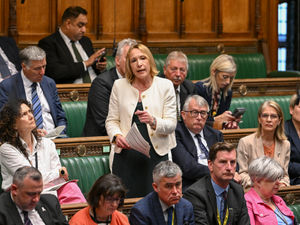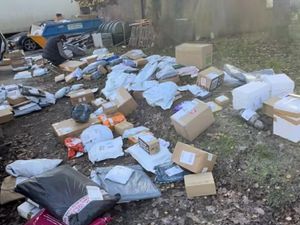Follow our green lead, urges Shropshire Council
Our county faces disasters caused by climate change if we don’t act now, Shropshire Council warned today.
The council says it has been working quietly behind the scenes for the past decade to reduce its own carbon footprint and work with others to encourage them to do the same.
Now, having declared its commitment to fight climate change, it has set up a special task force with the aim of becoming carbon neutral by 2030.
Some councillors say Shropshire is not doing enough and should be accelerating both its own actions, as well as only working with contractors that do the same.
Councillor Dean Carroll, cabinet member for climate change, said the authority was leading by example.
“This is something that we can’t do on our own, we have to encourage others in the county to follow our lead,” he said.
He added the council was promoting major grant schemes for installing renewable energy such as the Marches Renewable Energy Project and also a Business Energy Efficiency Programme that would help businesses save energy and cut costs.
Adrian Cooper, the council officer heading up the taskforce, said the council’s own efficiency measures, including installing solar arrays at different sites.
The council now has solar panels on the roof of the Shirehall as well as other buildings, from schools to its Greenacres Farm, near Baschurch, which helps adults with learning difficulties.
LED lighting
Not only are these saving energy, Mr Cooper says they have already saved the authority £1.3 million in costs.
The council is also about to change all its street lights over to LED lighting, saving power and money in the long term.
This is in addition to the work of many town and parish councils in Shropshire which have led the way in switching over to the more energy efficient lighting on footways.
Another strand to the climate change work is working to store more carbon.
County ecologist Dan Wrench said Shropshire had many opportunities to store carbon, whether through planting trees, protecting its internationally important peat bogs in the north of the county or trapping more carbon within the soil in the fields.
"We already have some wonderful woodlands and we are looking to help create more as well as encouraging people to plant individual trees and looking as street trees,” he said.
“Our mosses in the north of the county can store an enormous amount of carbon, a three-metre depth of peat is the equivalent of a fully mature tree.
“And we have peat in Shropshire that is much, much deeper.”
Agricultural
For well over a decade, the Fenn’s, Whixall and Bettisfield Mosses National Nature Reserve have been held up as an international example of work going on to protect the peat in a bid to stop climate change, with Natural England continuing its work there.
Mr Wrench said Shropshire’s agricultural community could also help.
He said moving to ‘no-till’ farming was another way of storing more carbon as was looking at ways of making the soil more carbon-rich. And he said important research was taking place at Harper Adams University to do just that.
Farmers can also get involved by diversifying to provide anaerobic digesters to create green energy that will help the National Grid move towards alternative energy supplies for Shropshire.
"The National Grid is going to need alternative energy supplies and Shropshire could really benefit by giving it those supplies," said Mr Wrench.
Businesses and organisations interested in the Marches Renewable Energy Project and Business Energy Efficiency Programme can get more information at shropshire.gov.uk/funding-opportunities/marches-renewable-energy-project





